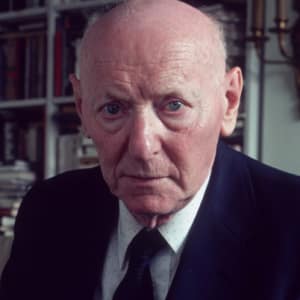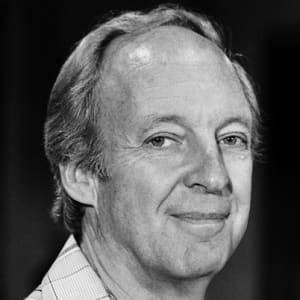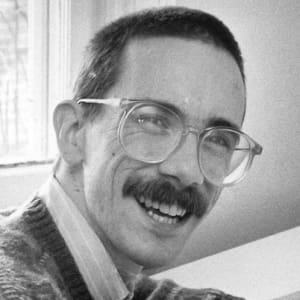
Isaac Bashevis Singer
Nobel Prize–winning novelist and short-story writer Isaac Bashevis Singer penned the novel The Family Moskat and the short story “Gimpel The Fool.”
Synopsis
Isaac Singer was born on July 14, 1904, in Radzymin, Poland. In 1950, he published his first major novel, The Family Moskat. Afterward, he wrote a string of acclaimed short stories, including "Gimpel The Fool." In the 1960s, he wrote the "The Spinoza of Market Street." In 1978, he won the Nobel Prize for Literature. He continued writing until shortly before his death, on July 24, 1991, in Surfside, Florida.
Early Years
Born to a family of religious Jews in Radzymin, Poland, on July 14, 1904, Isaac Bashevis Singer was raised in an overcrowded, poor Jewish quarter of Warsaw. Singer's father was a Hasidic rabbi, while his mother came from a long line of Mitnagdic rabbis. His older brother, Israel Joshua (also known as I.J.), grew up to become a novelist, and his sister, Esther Kreitman, also became a known writer.
As a youngster, Singer was a voracious reader. Benedict de Spinoza, Nikolai Gogol and Fyodor Dostoyevsky all ranked among his earliest influences.
Beginning in 1921, Singer attended the Warsaw Rabbinical Seminary, where he was provided a traditional Jewish education. Although he was being groomed to become a Hasidic rabbi like his father, Singer followed in his older brother's footsteps instead—expressing a preference to become a writer rather than a religious leader.
Journalist
Two years after enrolling at the seminary, Singer left to pursue a job in journalism. After a year spent working as a journalist, proofreader and translator in Warsaw, Singer emigrated from Poland to the United States, where his brother, I.J., awaited him. Isaac took a job in New York, writing for The Jewish Daily Forward, a Yiddish newspaper with an immigrant readership. The paper published his articles in serial format. Singer's journalistic pieces were also published in numerous journals.
Author
Despite his success in journalism, Singer's passion for literature would not be suppressed. Soon, he started writing short stories on the side. In 1925, he debuted as a fiction writer with the short story "In Old Age." In 1935, Singer's first novel, Satan in Goray, was published.
1950 marked the publication of his first major work, a novel about a family of Jews living in the ghettos of pre–World War II Poland, entitled The Family Moskat. Following its publication, Singer wrote a string of acclaimed short stories. Among them was one of his best-known works, "Gimpel The Fool."
During the 1960s, Singer's work continued to touch on questions of morality. One of his most recognized works from the time was Enemies: A Love Story, about the emotional struggle of a Holocaust survivor. His other important novels during that era included The Manor, The Estate and his memoir, In My Father's Court. His beloved story "The Spinoza of Market Street" also stemmed from this period.
By then a major writer known worldwide, Singer turned toward more contemporary topics in the 1970s. In addition to writing memoirs and his first children's books, he produced the novels The Penitent and Shosha. In 1978, he was awarded the Nobel Prize in Literature.
In the 1980s, Singer published The King of the Fields and Scum. He continued writing until he suffered a series of strokes, dying on July 24, 1991, in Surfside, Florida.




